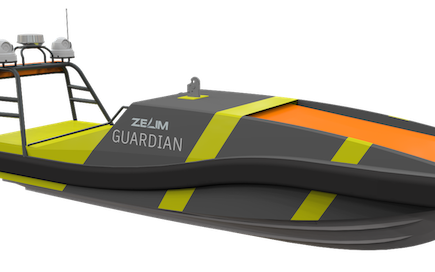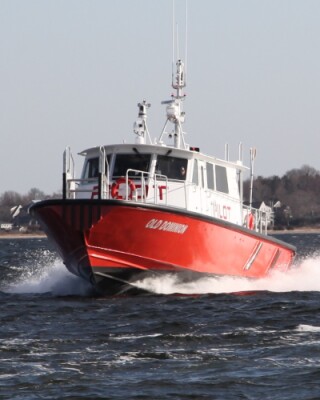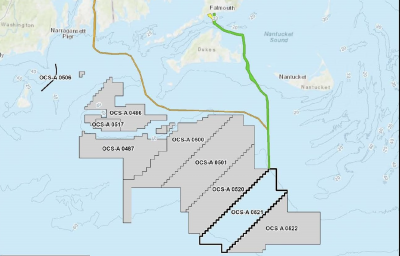Zelim, a Scottish search and rescue (SAR) technology company, has developed the Guardian class of fast rescue craft controlled by Sea Machines Robotics’ SM300 autonomous command and control marine self-piloting system.
The 8.5m (27.8') Guardian will be the world’s first rescue vessel capable of remote control operation, Zelim said. The SM300 hardware will integrate with the Guardian’s propulsion system and sensors, enabling vessel control while streaming real time situational awareness and casualty detection to a remote command center anywhere in the world. The SM300 software will provide the ability to autonomously execute transit routes and broad area search patterns, as well as manually operate the craft with real time teleoperation using a remote command center.
The SM300-controlled Guardian will enable enhanced capability to respond to person overboard incidents and close standby cover for offshore operations. Deployed from a larger vessel, the Guardian will be first to arrive on scene to recover casualties and bring them back to the safety of the parent vessel. The Guardian has been designed to cope with extreme conditions far from shore. When operating uncrewed, the vessel can be deployed in conditions often deemed too dangerous for a crewed fast rescue craft.
Zelim's SARBox detection solution will assist the remote pilot by detecting and tracking casualties in the water, whether its daytime, nighttime, or in mist or fog. Once detected the remote pilot will command the vessel to transit directly to them using the SM300 software.
At this point the Guardian will deploy its patented Swift rescue solution to recover the casualties from the water, again controlled using the SM300. This combination of technologies will give the vessel a unique capability and be a global first for the maritime industry, the company said.
"When developing the world's first remotely operated rescue vessel the command-and-control system's reliability is absolutely critical, particularly given the lifesaving application,” Zelim CTO, Dough Lothian, said in a prepared statement. "We are thrilled to have Sea Machines onboard for the command and control of our next generation fast rescue craft. Their demonstrable track record in remote operations, collision avoidance and autonomous operations set them apart from the competition and perfectly complements our state-of-the-art technologies.”
"This project sends a clear signal to the industry that autonomous marine technology is rapidly gaining adoption and is in-demand among commercial operators,” said Sea Machines’ sales director Europe, Frank Relou.





